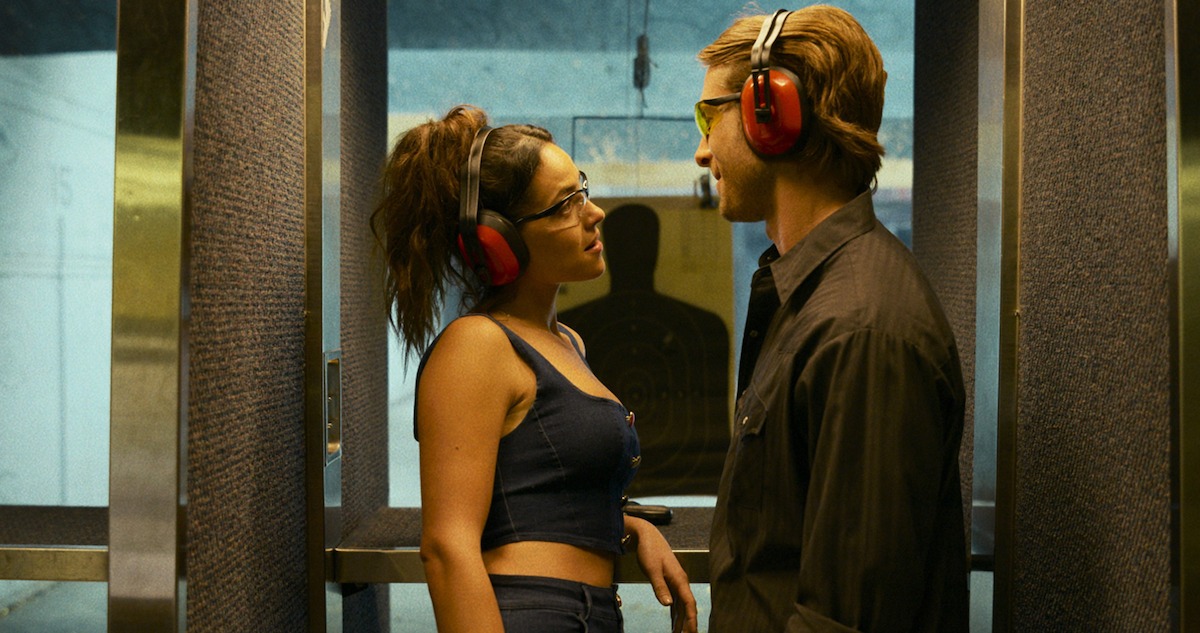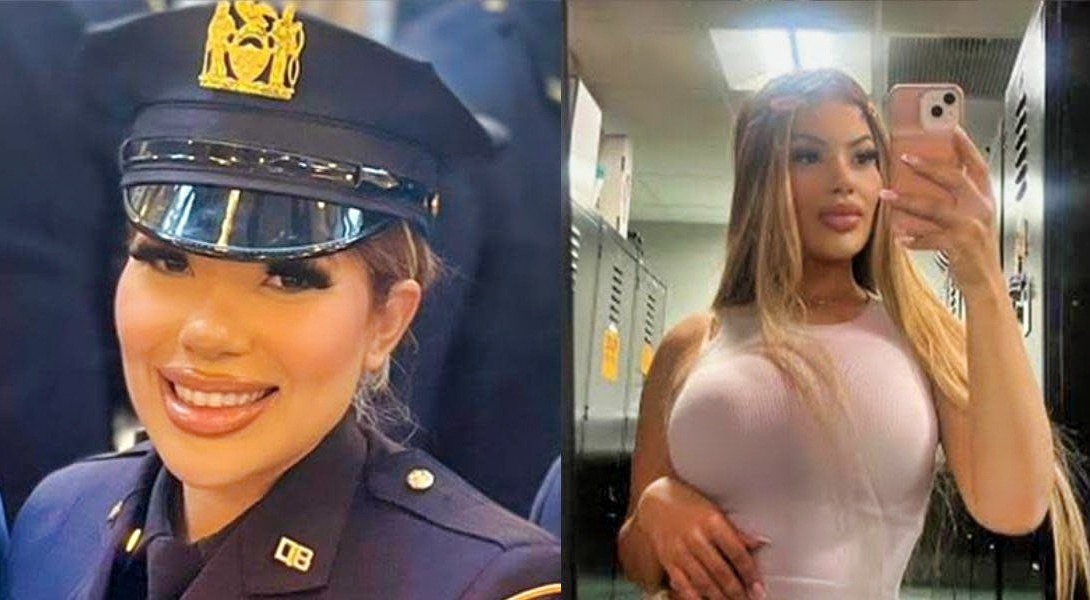Watch Nypd Detective Pulled From Sex Crime Cases After Moonlighting As Video Vixen
The incident of an NYPD detective being pulled from sex crime cases after moonlighting as a video vixen has stirred a significant controversy. This case, involving Detective Melissa Mercado of the Special Victims Unit, has become a modern-day discussion point about the balance between professional responsibility and personal freedom. The controversy erupted after footage emerged of Mercado appearing in a rap music video—dancing provocatively and engaging in behavior that many deem unbecoming of an officer tasked with investigating some of society’s most heinous crimes. The debate now centers on whether such off-duty conduct undermines the public’s trust in law enforcement, and if the detective’s personal endeavors should impact her professional role.
In today’s digital age, where every move can be broadcast widely and instantaneously, actions that once remained in the private realm are now subject to public scrutiny. For police officers—especially those working in sensitive departments like the Special Victims Unit—maintaining a squeaky-clean public image is often seen as essential to ensuring that the integrity and professionalism of their role are not called into question. The case of Detective Mercado has ignited conversations on ethics, departmental policies, and the fine line that separates an individual’s private life from their public responsibilities. Critics argue that the optics of an officer moonlighting in such a role are damaging and can erode public trust, while others believe that personal freedom should not necessarily be compromised by one’s professional standing.
This article will examine the case in detail, starting with the background of the NYPD and the responsibilities of its detectives, moving into the specifics of the incident, the subsequent public and professional backlash, and the broader implications for ethics in policing. By unpacking each element, we aim to provide a comprehensive overview that not only explains the controversy but also invites discussion about the balance between personal expression and the expectations placed upon those who serve in public office.
THE BACKGROUND OF THE NYPD AND THE SPECIAL VICTIMS UNIT
Understanding the impact of Detective Mercado’s actions requires a broader look at the structure and expectations of the NYPD, particularly within the Special Victims Unit (SVU). The NYPD’s SVU is renowned for handling some of the most sensitive and critical cases, including sexual assault, rape, and molestation. Officers in this unit are expected to exhibit the highest levels of professionalism, empathy, and discretion because their work involves assisting vulnerable populations and pursuing justice in cases that profoundly affect lives.
Historically, the reputation of the NYPD has been built on a foundation of trust and integrity. Officers are not only enforcers of the law; they are also expected to be role models who embody the values of the community they serve. This is particularly significant in cases involving sex crimes where the public’s trust is essential for victims to come forward and seek justice. In such contexts, any action that could potentially undermine this trust is taken very seriously. It is in this environment of high expectations that the actions of an individual officer, even if off-duty, are scrutinized with considerable intensity.
The expectations set by the department include strict guidelines regarding off-duty behavior, especially for those in high-profile units. While the NYPD has detailed protocols and policies governing conduct, many of these are intentionally broad, relying on subjective interpretation to assess what might harm the department’s image. Officers are generally expected to refrain from engaging in activities that might be seen as inconsistent with the dignity of their role. This subjective standard, while allowing for personal freedom, also leaves room for controversy when an officer’s personal activities come under public examination. In Detective Mercado’s case, her participation in a rap video—a context vastly different from her day-to-day responsibilities—sparked a debate about whether her actions were in line with the ethical standards expected of a detective in the SVU.
The background of this issue also includes a larger societal conversation about the double standards often imposed on women in law enforcement. Female officers, in particular, may find themselves navigating the fine line between professional expectations and personal expression. The scrutiny that Detective Mercado has faced is not only about her individual conduct but also about how female officers are expected to balance their personal identities with their professional roles. The case forces us to confront important questions: Should personal artistic endeavors be grounds for professional censure? And how do we differentiate between actions that genuinely compromise one’s duty and those that are simply a form of personal expression?
In exploring these questions, it is essential to understand the evolving nature of media and public accountability. With social media platforms amplifying every personal detail, officers are increasingly finding that their off-duty lives are inextricably linked to their professional reputations. This heightened visibility has led many in law enforcement to adopt stricter standards of conduct off-duty than they might otherwise. Thus, the debate surrounding Detective Mercado’s participation in a rap music video is emblematic of larger tensions in a digital society—where personal freedom and public expectation are in constant negotiation.
THE INCIDENT: MOONLIGHTING AS A VIDEO VIXEN
At the heart of this controversy is the fact that Detective Melissa Mercado appeared in a rap music video in which she performed provocative dance moves. The video, which quickly went viral, depicted Mercado engaging in activities that many argued were inconsistent with the decorum expected of an officer in the Special Victims Unit. This was not merely a case of casual dancing; it was an overt display that intersected the world of law enforcement with the realm of popular entertainment.
Moonlighting as a “video vixen” brought Mercado under intense scrutiny. Social media platforms exploded with opinions—some expressing shock and disapproval, others defending her right to express herself outside of her professional obligations. Critics contended that such behavior, especially for an officer handling sex crime cases, could be seen as trivializing the gravity of her primary responsibilities. They argued that by appearing in a rap video, Mercado risked sending a message that blurred the lines between her role as a law enforcer and a performer, potentially compromising the integrity of the investigative process.

Notably, retired members of the NYPD and other law enforcement professionals were vocal in their criticism. For example, a retired SVU chief openly labeled Mercado’s actions as “unbecoming of a police officer,” asserting that her conduct fell short of the rigorous ethical standards expected within the department. The argument presented was not solely about the act of dancing but was framed within a broader critique of the need for officers, particularly those in specialized units, to maintain an image that reinforces public trust and authority.
The question that arose, however, is whether Detective Mercado’s involvement in the music video directly violated any formal NYPD policies. The NYPD does have strict guidelines for off-duty behavior, but these guidelines are often not black-and-white. There is no explicit rule that prohibits dancing or participating in entertainment media. Instead, the standards are typically interpreted based on the potential impact such behavior might have on the department’s reputation. In this light, even if no formal rule was broken, the optics of the situation raised enough concerns to prompt action. Mercado was removed from all active sex crime cases—a move that underscores the sensitivity with which the department treats any potential damage to its public image.
This incident also opens up a broader conversation about the role of personal identity in professional settings. In a time when individuals are encouraged to express themselves creatively and diversify their personal brands, the traditional boundaries between personal and professional lives are increasingly blurred. Yet, for public servants like police officers, these boundaries remain critically important. The decision to include Detective Mercado in a rap video, and the subsequent reaction, highlights the inherent conflict between an individual’s right to personal expression and the expectations placed upon those entrusted with significant responsibilities in society.
In summary, the incident involving Detective Mercado as a video vixen is a multi-faceted issue. It is not solely a matter of a single off-duty performance but rather a flashpoint in the ongoing debate about professionalism, ethics, and the modern realities of personal branding in an era of digital media.
PUBLIC REACTION AND BACKLASH
The fallout from the video was swift and widespread. Social media erupted with reactions ranging from outright condemnation to staunch defense of Mercado’s right to pursue side projects. Prominent voices, including retired law enforcement officials and legal experts, criticized her actions. They argued that as a detective in a high-profile unit, Mercado should be a beacon of restraint and professionalism. The sentiment expressed by many was that engaging in such provocative performances undermined the seriousness of her official duties.
One of the most scathing critiques came from former officers who felt that Mercado’s behavior could erode public confidence in the NYPD, particularly in cases involving sexual crimes where victims already face numerous hurdles in seeking justice. Critics pointed out that the very nature of the work conducted by the SVU demands a level of decorum that is incompatible with the perceived frivolity of appearing in a music video designed to entertain rather than inform. These voices contended that the department’s reputation—and by extension, the trust placed in it by the public—was at risk if officers were seen as engaging in activities that could be interpreted as undermining their authority.

The controversy also sparked a debate about the role of gender in law enforcement. Female officers often face a double standard when it comes to off-duty conduct. While male officers may be allowed a certain degree of leniency in their personal pursuits, female officers are frequently held to a higher standard, with any perceived misstep amplified in public discourse. In Mercado’s case, the backlash was not just about the content of the video, but also about societal expectations regarding how a female officer should behave. Critics argued that her decision to participate in the video, regardless of whether it broke any formal rule, failed to meet the conventional expectations of decorum for someone in her position.
Defenders of Mercado, however, offered an alternative perspective. They argued that her personal choices should not automatically tarnish her professional reputation. In an era where social media blurs the lines between professional and personal, they posited that officers, like all citizens, have the right to explore their interests outside of work without facing undue professional penalties. These supporters emphasized that the issue at hand was less about any misconduct and more about the optics of the situation—a matter of public perception rather than any clear violation of duty.
The debate also extended to the public’s perception of the NYPD itself. Many community members expressed concern that such controversies could lead to a broader erosion of trust in law enforcement. In cases involving sex crimes, where community trust is paramount for effective investigation and victim cooperation, even the appearance of impropriety can have serious ramifications. Thus, while opinions remain divided, the backlash has undoubtedly served as a catalyst for broader discussions about the standards of conduct expected of police officers in today’s digitally connected world.
Ultimately, the public reaction highlights a critical tension: the need to balance personal freedom with the responsibilities inherent in public service. The divergent viewpoints—ranging from calls for strict adherence to traditional norms to appeals for a more modern understanding of personal expression—reflect deep-seated societal debates about the roles and expectations of those in positions of authority.
NYPD POLICY AND THE RESPONSE TO THE INCIDENT
In response to the controversy, the NYPD acted by removing Detective Mercado from all active sex crime cases. While it remains unclear whether she violated any specific departmental policies, the decision underscores the department’s cautious approach when it comes to protecting its reputation and maintaining public trust. The NYPD’s strict guidelines for off-duty behavior—especially for officers involved in sensitive cases—are designed to ensure that any activity which could potentially bring disrepute is managed swiftly and decisively.
Although no written policy explicitly prohibits participation in entertainment media, the standards for maintaining a “squeaky-clean” image are implicitly understood. This case exemplifies how subjective interpretations of conduct can lead to disciplinary actions, even in the absence of a formal breach. For many in the law enforcement community, the decision to reassign Mercado reflects a broader commitment to upholding an image that aligns with the rigorous ethical expectations placed on those in the Special Victims Unit.

Moreover, this incident has sparked internal discussions within the NYPD about the boundaries of personal expression for its officers. The tension between upholding departmental integrity and allowing for personal freedom has become even more pronounced in an age where social media magnifies every aspect of an individual’s life. Officers are increasingly aware that their private actions can have public consequences, and departments across the country are reexamining their policies to address these new challenges.
Some experts suggest that rather than implementing blanket policies that restrict off-duty behavior, departments should focus on the impact of such actions on public trust and the effectiveness of their work. In this vein, the NYPD’s decision could be seen as a preventative measure designed to avoid any further controversy that might hinder investigations or damage community relations. While the specifics of Mercado’s future within the department remain uncertain, her reassignment sends a clear message about the importance of maintaining a public persona that is in harmony with the responsibilities of a law enforcement officer.
Additionally, the incident has fueled discussions about the need for clearer guidelines regarding off-duty conduct. As digital media continues to blur the lines between personal and professional lives, law enforcement agencies might need to revisit their codes of conduct. Striking a balance between allowing officers to express their individuality while ensuring that their actions do not compromise public confidence is a challenge that many departments will face in the near future.
The NYPD’s response, while decisive, also highlights the evolving nature of public accountability. In a society where every personal choice can become a subject of national debate, the policies that once governed off-duty behavior are under renewed scrutiny. The case of Detective Mercado thus serves as a catalyst for rethinking how best to manage the intersection of personal expression and professional responsibility within the law enforcement community.
PROFESSIONAL ETHICS VS. PERSONAL FREEDOM: A DEBATE
The controversy surrounding Detective Mercado’s off-duty activities is emblematic of a larger debate that transcends the confines of one individual’s actions. At its core, the issue revolves around the tension between professional ethics and personal freedom—a topic that has gained increasing prominence in our digital age. On one hand, public servants, particularly those in sensitive fields like law enforcement, are expected to embody a level of professionalism that instills public trust. On the other hand, they are also citizens with personal lives, creative pursuits, and individual rights to self-expression.
For many critics, the concept of professionalism in law enforcement extends beyond the mere performance of one’s duties; it includes maintaining an image that is consistent with the values of the community. The SVU, tasked with handling cases of sexual violence and abuse, is particularly vulnerable to public scrutiny. Critics argue that any behavior that could be perceived as diminishing the seriousness of their work not only affects the individual officer but also has broader implications for the department’s reputation and the effectiveness of its investigations.
Conversely, supporters of personal freedom argue that what an officer does in their private time should not automatically be construed as an indication of their professional capability or dedication. They contend that as long as an officer’s conduct does not directly interfere with their work or breach any formal policies, they should be free to pursue personal interests—even if those interests involve participating in entertainment or media projects that are outside the conventional norms of law enforcement. This perspective champions the idea that individuals should not be penalized for expressing themselves creatively, even if such expression occurs in contexts that may seem incongruent with their official roles.

The debate is further complicated by the subjective nature of what constitutes “appropriate” conduct. There is no universal standard for off-duty behavior, and what is considered acceptable can vary widely depending on cultural norms, departmental expectations, and public sentiment. In a digital era where personal and professional boundaries are increasingly blurred, this lack of clear demarcation creates fertile ground for controversy. The case of Detective Mercado has brought this issue into sharp focus, forcing both the public and law enforcement agencies to confront the challenge of balancing an officer’s right to personal expression with the need to uphold the integrity of the profession.
Additionally, the discussion raises questions about accountability and transparency within law enforcement agencies. If an officer’s private actions are deemed to undermine the department’s public image, what is the appropriate course of action? Should disciplinary measures be based solely on public perception, or should there be a more nuanced evaluation of how such actions impact their ability to perform their duties? These questions do not have easy answers, and the debate is likely to continue as societal values and expectations evolve.
In conclusion, the ethical debate surrounding this incident is not merely a matter of one detective’s conduct but is reflective of broader societal tensions. It challenges us to consider how we define professionalism and what responsibilities public servants have in maintaining the trust of the communities they serve. As this conversation unfolds, it will be important for both law enforcement agencies and the public to engage in a dialogue that respects personal freedom while recognizing the unique demands placed on those who work in roles of public trust.
The fallout from Detective Melissa Mercado’s involvement in a provocative rap video is likely to have lasting repercussions on how law enforcement agencies manage off-duty conduct and personal expression. This incident serves as a cautionary tale for public servants, reminding them that in today’s hyper-connected world, personal actions are subject to intense public scrutiny and can have profound professional consequences. As departments like the NYPD grapple with balancing personal freedom with the need for public accountability, several key implications for the future emerge.
First, there is a clear need for more transparent and specific guidelines regarding off-duty behavior for officers in sensitive units. While broad standards allow for some degree of flexibility, they also leave room for subjective interpretation that can result in inconsistent disciplinary actions. Establishing clearer boundaries could help both officers and department administrators navigate the complex landscape of personal expression in the digital era.
Second, this incident underscores the importance of public trust in law enforcement. The controversy has shown that even perceived missteps in an officer’s private life can erode confidence in the department’s ability to handle critical cases, particularly those involving sexual crimes. Moving forward, it is imperative for law enforcement agencies to engage in proactive measures that reinforce their commitment to ethical conduct while also respecting the individuality of their officers.
Furthermore, the debate sparked by this case raises important questions about the evolving role of social media and digital platforms in shaping public perceptions. In an age where every action can be broadcast and critiqued on a global scale, the lines between personal and professional conduct are more blurred than ever before. This reality calls for a reassessment of how officers are trained and advised regarding their digital presence, ensuring that they are equipped to navigate the complexities of modern communication without compromising their professional responsibilities.
Finally, the future of this debate will likely see increased calls for a balanced approach that does not penalize creative expression while still maintaining the integrity of law enforcement. As society continues to evolve, so too must the expectations and standards for those in public service. The case of Detective Mercado will undoubtedly be referenced in future discussions about the limits of personal freedom for police officers, and it serves as a reminder that maintaining public trust requires both adherence to professional standards and an understanding of the changing nature of personal identity in the digital age.
In summary, the incident involving Detective Mercado is more than a singular case—it is a microcosm of the broader challenges facing law enforcement in the 21st century. The ongoing debate between professional ethics and personal freedom will continue to shape policies and public perceptions in the years to come. As the NYPD and other agencies reassess their approaches to off-duty conduct, the lessons learned from this incident may well pave the way for more comprehensive and nuanced guidelines that balance the rights of officers with the imperative of maintaining public confidence.
News -
Bbynessaxo Leaked The Controversy, Privacy Issues, and Digital Ethics
Osamason Leak Video Links The Viral Scandal and Its Impact on Digital Privacy
Muskan Yadav MMS Viral Video The Impact of Digital Privacy Breaches
Giuli Bellicoso Video Unraveling the Controversy and Digital Privacy Concerns
Xenia Helena The Rise, Challenges, and Triumphs of a Digital Icon
Watch Video Giuli Bellicoso Private Video Links The Full Story
Jaksa Tasya Viral Video The Controversy, Impact, and Ethical Concerns